WFH Guidelines for the Management of Hemophilia | Virtual Summit 2020 — Russian
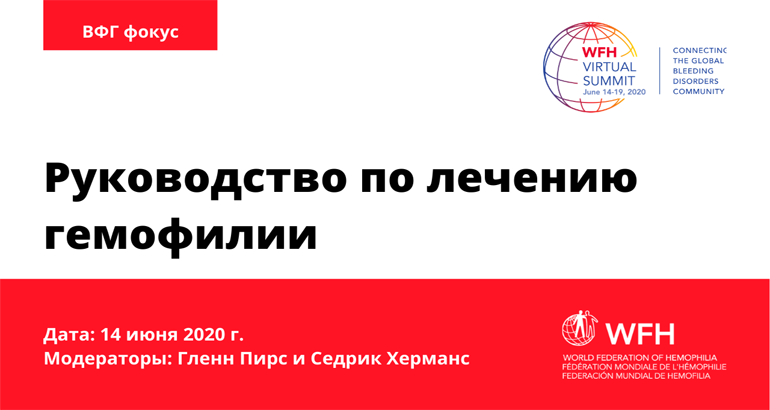
In this session from the WFH 2020 Virtual Summit, Glenn Pierce, Alok Srivastava, Steven Pipe, Manuel Carcao, Margaret Ragni and Johnny Mahlangu present and discuss updates to the WFH Guidelines for the Management of Hemophilia. Discussion topics include hemostatic agents, prophylaxis, inhibitors, and treatment of specific hemorrhages. Click on the icon below to access more […]
Women and girls with hemophilia | Virtual Summit 2020 — Russian
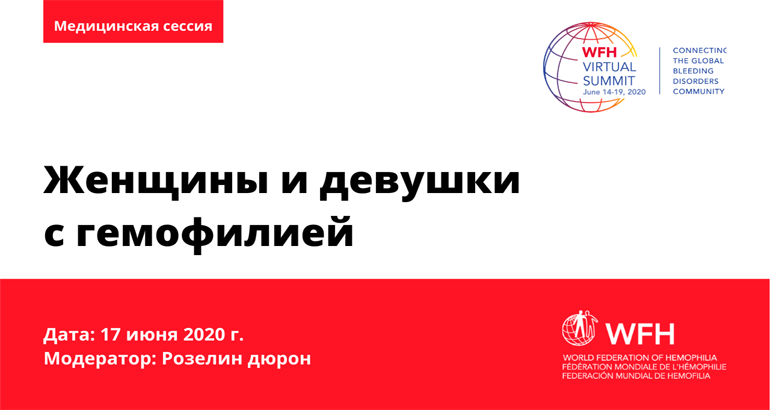
In this session from the WFH 2020 Virtual Summit, Roseline d’Oiron, Sarah O’Brien and Andra James discuss issues on women and girls with hemophilia (WGWH), including female carriers with low levels of FVIII or FIX and/or bleeding experiences. The key points that will be covered are the importance of early diagnosis during childhood of affected […]
Redefining prophylaxis in the modern era | Virtual Summit 2020 – Russian
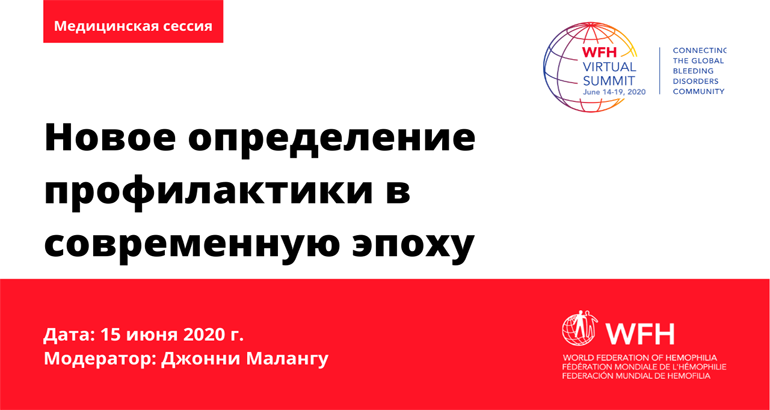
The currently evolving novel therapies for the management of hemophilia has ushered in a new era characterized by improved prophylaxis targets and outcomes. In this session from the WFH 2020 Virtual Summit, Johnny Mahlangu, Victor Blanchette, Robert Klamroth and Emna Gouider redefine prophylaxis in the modern era by revisiting its definition, presenting data to support […]
Inhibitors – Think differently | Virtual Summit 2020 — Russian
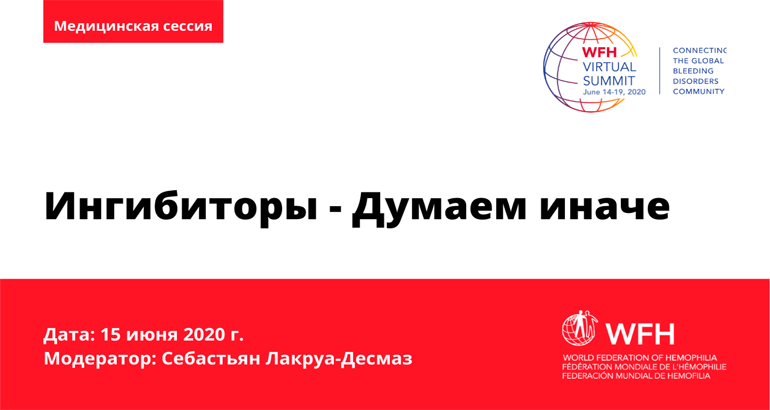
The development of inhibitory antibodies to therapeutic factor VIII (FVIII) in up to 40% of people with severe hemophilia A (HA) is the major complication in treatment/prevention of hemorrhages. The reasons some people with HA develop inhibitors while others do not, remain unclear. In this session from the WFH 2020 Virtual Summit, Sebastien Lacroix-Desmazes, Kathleen […]
Snapshot: ASH ISTH NHF WFH Guideline Recommendations for the Diagnosis of von Willebrand Disease (VWD) — Russian
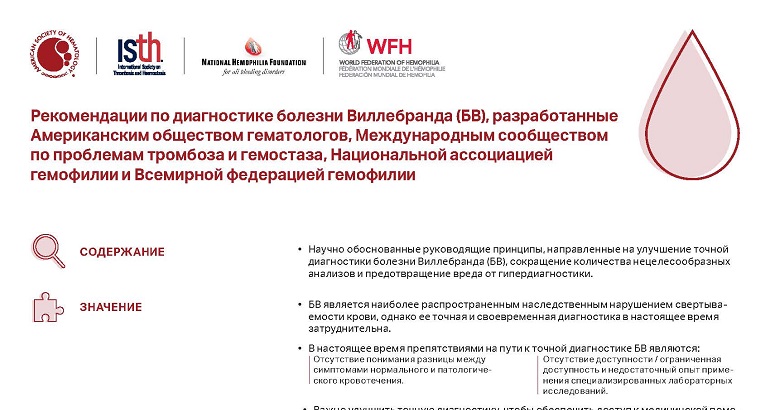
This one-page summary presents the highlights of the ASH ISTH NHF WFH Guidelines on the Diagnosis of von Willebrand Disease (VWD). It outlines what is covered in the guidelines, why they matter and who they affect. Click here to access the full ASH ISTH NHF WFH VWD Guidelines.
Snapshot: ASH ISTH NHF WFH Guideline Recommendations for the Management of von Willebrand Disease (VWD) — Russian
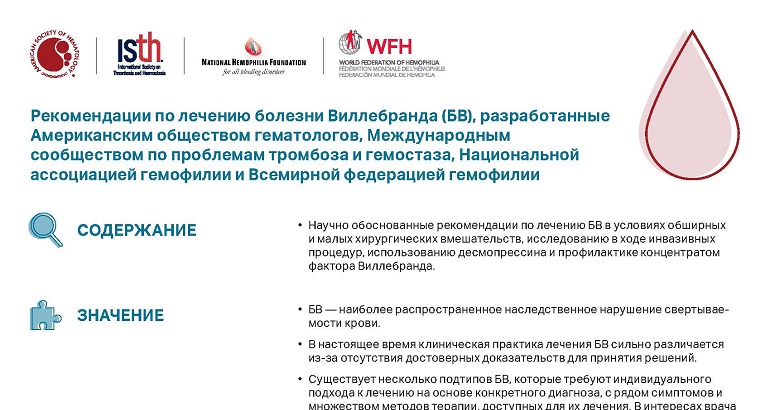
This one-page summary presents the highlights of the ASH ISTH NHF WFH Guidelines on the Management of von Willebrand Disease (VWD). It outlines what is covered in the guidelines, why they matter and who they affect. Click here to access the full ASH ISTH NHF WFH VWD Guidelines.
In-HemoAction Card Game — Russian
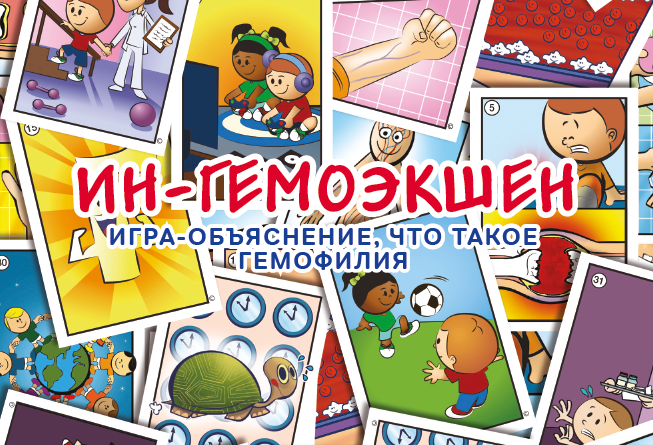
Using the universal language of pictures, children around the world can learn about hemophilia in a fun, easy to understand, and interactive way. The In-HemoAction cards teach children how to prevent bleeds and manage hemophilia. An update of the hugely popular HemoAction game, this edition features additional content covering prophylaxis, inhibitors, bypassing agents, immune tolerance […]
Factor Replacement Therapy Schematic — Russian
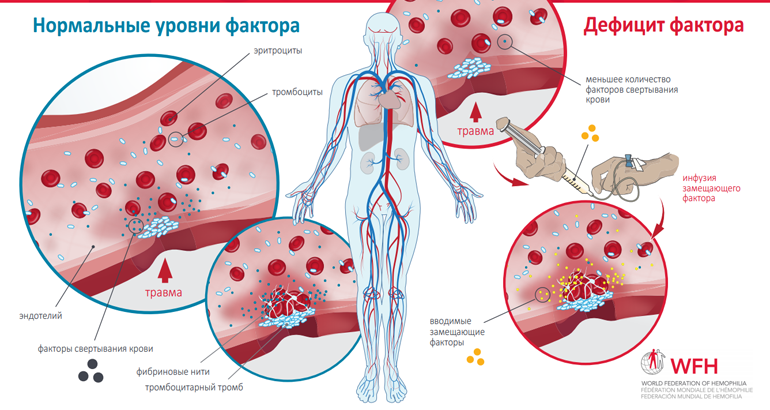
This illustrated schematic demonstrates the normal process of blood clotting, how it is diminished when a clotting factor is lacking, and how infusion of replacement therapy works to achieve normal levels of blood clotting. It also illustrates the clotting factor cascade and highlights the points in the cascade where each type of hemophilia treatment product […]
Desmopressin (DDAVP) — Russian
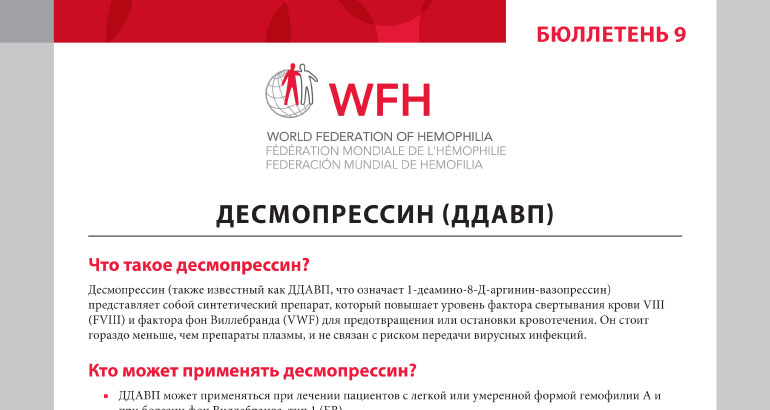
This resource has also been translated into the following languages, with permission from the WFH, by NMOs: Polish Desmopressin (DDAVP) may be the treatment of choice for patients with mild or moderate hemophilia A and type 1 von Willebrand disease (VWD). This Fact Sheet presents essential information about this synthetic medicine which costs much less than […]
Planning and Initiating Projects: A Guide for Emergent NMOs — Russian
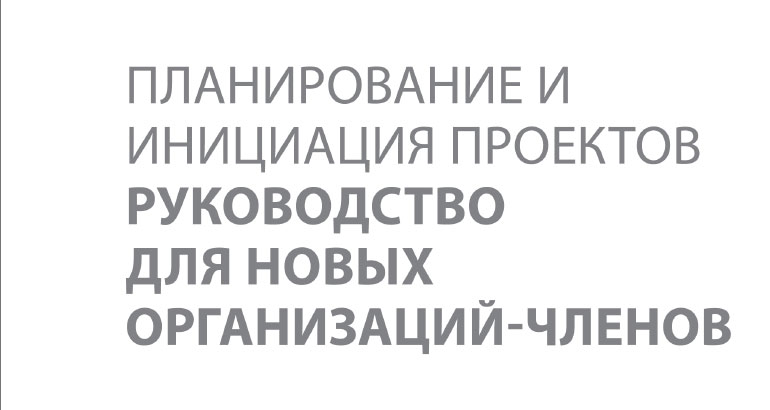
Volunteer team members, and their beneficiaries, often have differing opinions on what projects should be of highest priority for an organization. It is essential to reach agreement on your priorities in a relatively quick and efficient manner and to coordinate the team’s energies, in order to be the most effective. This guide provides strategies for […]
Hemophilia Patient Organization Self-Assessment — Russian
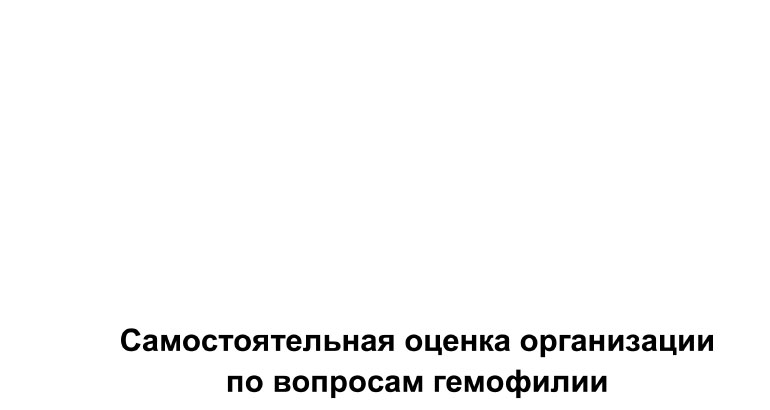
A self-assessment is a useful exercise for organizations to take a closer look at what they do and how they do it. The process can help identify strengths and weaknesses and guide strategic planning. In 2011, the WFH developed this self-assessment specifically for its national member organizations (NMOs). It features a scoring system to evaluate […]
Quality Data Collection — Russian
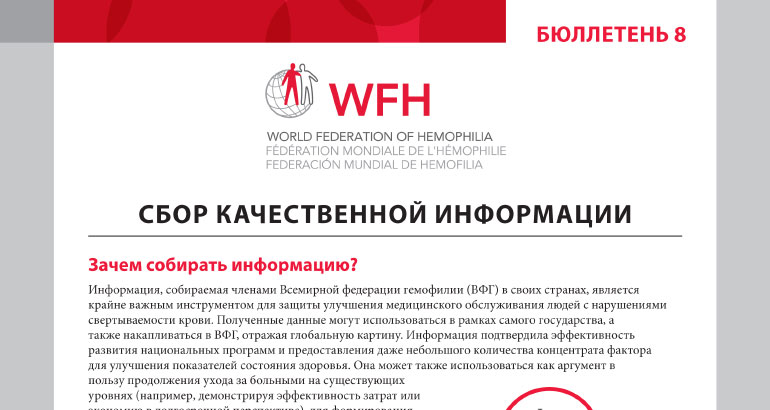
Quality data are extremely useful in advocating for better care for people with bleeding disorders. This Fact Sheet introduces the rationale for data collection, the criteria for quality data, the keys for successful quality data collection, and examples of how quality data collection can provide the foundation of effective advocacy.
